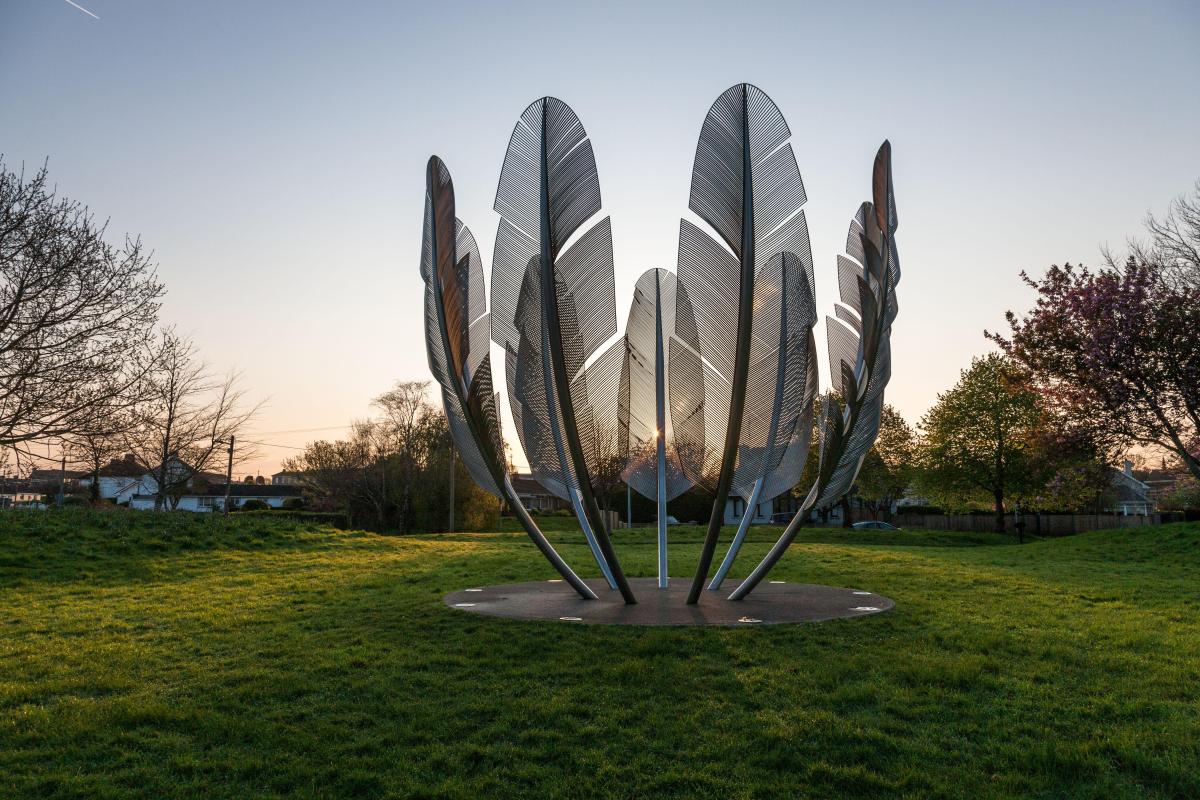The Choctaw Nation was, in 1831, among the first to be forcibly resettled from its ancestral lands in Alabama, Mississippi, and Florida to Oklahoma. Over the course of several years, the Trail of Tears killed approximately 2,500-4,000 Choctaws.
Sixteen years after the genocidal Trail of Tears, the Choctaw were struggling to survive under the policies left by President Andrew Jackson.
Yet in 1847, upon learning of the plight of the starving Irish amid the throes of the deadly potato famine, members of the Choctaw Nation dug deep into their own pockets, collecting $170 from its members. The money eventually arrived at the Society of Friends in Dublin.
As the potato famine ravaged Ireland, leaving nearly 1 million dead and a quarter of the nation’s population fleeing the country, the money, equivalent to $5,000 today, was distributed to get food to those in great need.
Jackson, ironically, was the son of two Irish immigrants.

Padraig Kirwan, a senior lecturer at Goldsmiths University and coauthor of the forthcoming book Famine Pots: The Choctaw Irish Gift Exchange 1847-Present, told Time that the Choctaw donation was “a moment of empathy, of understanding what it means to have lost.”
As the British government’s woeful response to the Irish famine continued to worsen the humanitarian crisis, the Choctaw felt a kinship with the struggling Irish and sought to help.
Since then, goodwill has persisted between the Irish and the Choctaw Nation. In 1995, on the 150th anniversary of their selfless donations, Mary Robinson, then-president of Ireland, traveled to the Choctaws in Oklahoma to thank them.
In 2017, the Choctaws’ chief went to Midleton, Ireland “for the dedication of a sculpture that was created by Irish artist Alex Pentek to honor the donation the Choctaws gave,” writes the Washington Post.
Today, Irish citizens are honoring that relationship in kind. As Covid-19 continues to devastate populations in the United States, Irish relief efforts for Native American communities are flowing in via GoFundMe.
Choctaw Chief Gary Batton said in a statement on Tuesday that he was “gratified” by the outpouring. However, he said that the Choctaw nation didn’t need help from the funds raised and pointed to the Navajo and Hopi peoples who have been hit hard by Covid-19. “We have become kindred spirits with the Irish in the years since the Irish potato famine,” he said. “We hope the Irish, Navajo and Hopi peoples develop lasting friendships, as we have.”

The Navajo Nation is the epicenter of one of the worst coronavirus outbreaks in the United States. Within the community there are high rates of asthma, diabetes, obesity, and heart disease, making many residents more vulnerable to the virus.
Jonathan Nez, the president of the Navajo Nation, announced yesterday on NPR that more than 20,250 Navajo people had been tested for the coronavirus, with 3,245 testing positive. “We have 103 deaths on the Navajo Nation,” Nez said.
Since then, many Irish citizens have directed their relief efforts toward the other native tribes in need.
Ethel Branch, a former Navajo Nation attorney general, started the fundraiser after growing concerned about her mother who lives on the Navajo reservation. Her mother, like many on the reservation, lives without running water or electricity, and Branch grew concerned that Covid-19 could spur an even greater food and water shortages there.
On May 2, The Irish Times journalist Naomi O’Leary shared Branch’s fundraiser on Twitter writing, “Native Americans raised a huge amount in famine relief for Ireland at a time when they had very little. It’s time for is [sic] to come through for them now.”

The post has since garnered thousands of likes and retweets, and as of today, $3,740,530 has been raised in relief efforts.
Many of the Irish who donated noted that they hoped to reciprocate the Choctaws’ act of kindness.
One donor, Ben O’Leary Fitzpatrick, wrote on the fundraising page, “The people of Ireland stand with our Choctaw Brothers & Sisters. You were there when we were in need, the people of Éire will always stand by you, solidarity with our brothers and sisters. We will never be able to repay the generosity you gave us.”
Another donor, Kevin O’Donnell, wrote, “To our friends of 173 years, returning your kindness to us when you could least afford it.”

